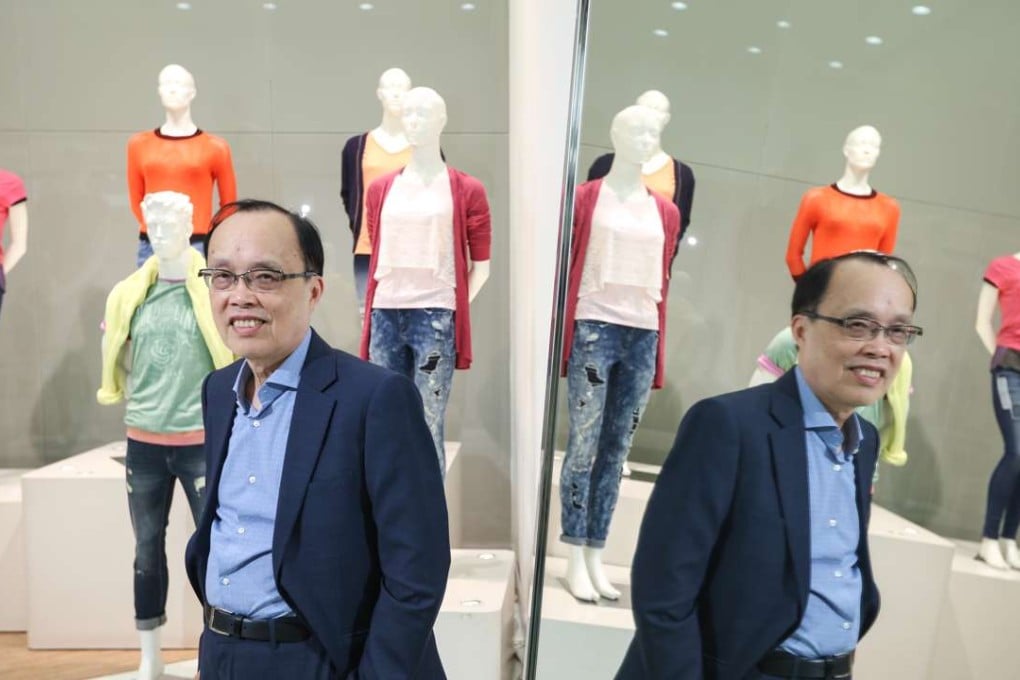Kenneth Lo: The textile tycoon who puts people first
Crystal Group’s founder Kenneth Lo, is the winner of the Owner-Operator Award at the 2016 DHL/SCMP Business Awards

Crystal Group, which produces garments for brands including Marks & Spencer, Victoria’s Secret, J.C. Penney and Gap, is aiming to triple its staff size to drive an expansion of its revenue to US$7 billion over the next decade, says its founder.
The Hong Kong garment maker, one of Asia’s largest, currently employs more than 60,000 staff in 20 global locations, producing more than 300 million pieces of garments a year. Fiscal 2015 revenue rose 1 per cent to US$1.7 billion.
Crystal’s success has been sewn at the hands of founder and chairman Kenneth Lo, who has spent his whole life in the garment industry.
At the tender age of 14, he first started working at his parent’s factory business, which produced gloves, then sweaters.
Years later in 1970, Lo and his wife Yvonne launched their own sweater-knitting factory, which grew into Crystal Group.
“The garment business is the kind of business a lot of people don’t like,” he said. “It has too many processes and every order is a new process every time.”
Despite the complications, it was a natural fit for Lo, whose late father Law Ting-pong created apparel brand Bossini.